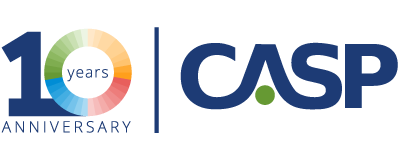Additional Resources for Pediatricians
American Academy of Pediatrics (AAP). As the leading pediatric health organization in the United States, AAP is uniquely positioned to provide support and evidence-based guidelines to pediatricians caring for children and youth with ASD.
- Overview of Autism Spectrum Disorders.
- Tools and resources for pediatricians.
- Resources for pediatricians to share with families.
Council of Autism Service Providers (CASP). CASP is a non-profit, international trade association of autism service provider organizations that have demonstrated a commitment to promoting and delivering evidence-based services for autism spectrum disorder. CASP’s mission is to provide information and promote standards that ensure quality, safe, and effective care.
Autism Commision on Quality (ACQ). ACQ’s mission is to continuously improve the impact of applied behavior analysis (ABA) services for the autism community through education and accreditation of provider organizations. ACQ is a non-profit subsidiary of CASP.
- Homepage.
- ACQ Applied Behavior Analysis Accreditation Program Standards and Guide.
- Directory of ACQ accreditees.
U.S. Centers for Disease Control and Prevention (CDC). The CDC's Autism Spectrum Disorder (ASD) website provides information about autism, including signs and symptoms, diagnosis, treatment, and living with ASD. It also offers resources for healthcare providers, families, and individuals, along with the latest data and research on autism prevalence. The site aims to promote early identification and support for individuals with autism by offering educational tools and public health initiatives.
The Association for Science in Autism Treatment (ASAT). ASAT provides research summaries of the full array of autism treatments for families and professionals to make informed choices before considering treatment options.
Pediatric Mental Health Care Access Program (PMHCA). The Pediatric Mental Health Care Access Program (PMHCA) provides pediatric health professionals with resources, consultations, and training to better address children's behavioral health needs. This support helps integrate mental health services into routine care, including referrals to specialists when needed. PMHCA focuses on enhancing workforce capacity through educational webinars and developing care teams to offer teleconsultation services. The program operates in 46 states, U.S. territories, and tribal areas, improving access to mental health care for children.


